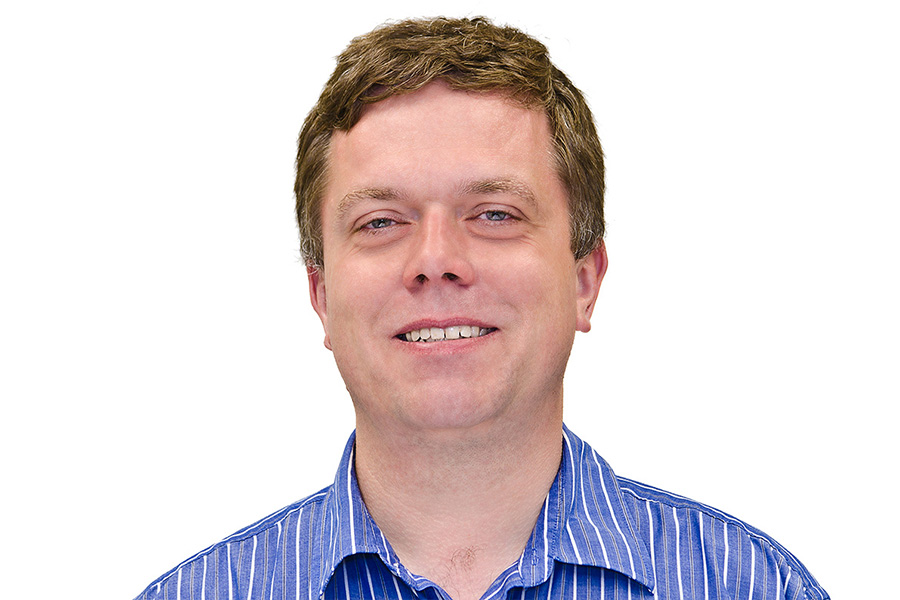FSU physicist named American Physical Society Fellow

A Florida State University faculty member has been named a 2020 Fellow of the American Physical Society.
Ingo Wiedenhöver, a professor at FSU’s Department of Physics in the College of Arts and Sciences, was selected for the distinction in recognition of his contributions to the field of physics. Each year, the APS selects less than half of one percent of the society’s total membership from peer-submitted nominations to be elected to the status of Fellow.
“Being named a Fellow of the American Physical Society by my colleagues is a very satisfying and encouraging recognition of my work in nuclear science and also points to the role FSU is playing in this field,” Wiedenhöver said.
In addition to his professorship, he also serves as the director of the John D. Fox Superconducting Linear Accelerator Laboratory at FSU, which affords physicists and graduate students alike the opportunity to study radioactive ion beams and a variety of other physics phenomena.
“It is a pleasure to salute Ingo on being named a fellow, and on his superb leadership of the Fox Laboratory. Ingo has joined an impressive list of recipients, while enhancing, even further, the prestige of FSU physics,” said Sam Huckaba, dean of the College of Arts and Sciences.
Wiedenhöver earned his Ph.D. in experimental nuclear physics from the University of Cologne, Germany, in 1995. He was a postdoctoral fellow at the U.S. Department of Energy’s Argonne National Laboratory in Lemont, Illinois, and an assistant professor at the National Superconducting Cyclotron Laboratory in East Lansing, Michigan, before joining the Florida State faculty in 2001.
Over the last decade, Wiedenhöver’s research has been focused on nuclear astrophysics, the study of how certain nuclear reactions influence the behavior of stars and star explosions.
“Developing the instruments to measure crucial nuclear reactions at the FSU accelerator laboratory has helped calibrate astronomical observations and create deeper understanding of the visible universe,” Wiedenhöver said.
Paul Eugenio, chair of the FSU Department of Physics, said Wiedenhöver has made extraordinary strides in his field and is deserving of the designation.
In addition to being a world-renowned leader in stellar nucleosynthesis, the study of nuclear reactions and decays that play key roles in the creation of chemical elements within stars, Wiedenhöver has been instrumental to the growth of the physics department over his nearly 20 years with the university and has pioneered new opportunities for research and multi-institutional collaboration.
“As the director of the FSU John D. Fox Accelerator Laboratory, Dr. Wiedenhöver continues to focus and expand the lab’s research capabilities in nuclear structure physics and in nuclear astrophysics with radioactive beams produced in flight,” Eugenio said. “The Fox Lab has had a vast impact on the education and training of undergraduate and graduate students. The expanded programs and capabilities driven by Dr. Wiedenhöver will not only lead to new and exciting physics results, but will also further expand the education and training opportunities for our students.”
Wiedenhöver said that his APS fellowship would not be possible without his students, and he continues to be inspired by watching them excel in the field themselves.
“The greatest pleasure of my work is to observe the development of my undergraduate and graduate students becoming independent scientists and to help them on the way,” Wiedenhöver said. “I am thankful for the collegial atmosphere at the FSU physics department and the continued support by the university and the National Science Foundation for my research and the research of my colleagues.”
Founded in 1899, the American Physical Society is a nonprofit membership organization working to advance and circulate the knowledge of physics through APS research journals, scientific meetings, education, outreach, advocacy, and international collaboration. The APS is composed of over 55,000 members, including physicists in academia, national laboratories, and industry in the U. S. and throughout the world.
